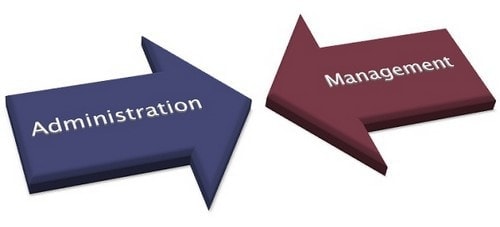
Exploring the Principles of Administrative Management Theory

Explore the roots of Administrative Management Theory (AMT) and learn how it gained immense popularity Discover Henri Fayol's analysis of managerial work and the 14 core principles he laid down Understand how using a scientific approach is crucial to AMT and its application in organizational management principles
Henri Fayol is widely regarded as the founder of modern management principles, and any discussion about administrative management theory would be incomplete without mentioning him. Born in 1841, Fayol devoted his life to developing and promoting his 14 principles of management, which we will delve into later in this document. During his lifetime, which spanned from 1841 to 1925, the global economy was characterized by free trade and open borders, with the concept of closed economies not yet introduced until the advent of communism. However, there were some instances of dumping and restrictions on sea trade by nervous nation states that were threatened by the influx of cheap factory-produced goods from the West. It was only after 1917 that closed economies began to be used as a policy instrument.
How were the seeds of the Administrative management theory sown?
In a world where global trade flourished with no barriers on import-export and capital movement, trafficking in any form - be it human, currency, or gold - was non-existent. However, this open economy also gave rise to many companies that functioned through an informal organizational structure, with no accountability to anyone except the employer. This resulted in a master-servant dynamic that was not very productive. History has shown that only process-oriented companies, where teams work together towards a common goal, perform better than owner-driven or personality-driven organizations that rely on untrained employees working as bonded laborers.
During the 16th to 18th century, the joint stock company became a popular concept and the separation between ownership and management was well-established. However, business managers were dissatisfied with the way management was organized and desired employees to align their organizational methods with the company's best interests. The emergence of trade unionism further complicated matters by creating conflicts between the bourgeoisie and the proletariat, ultimately catalyzing the French Revolution. This success inspired working classes in other nations to pursue similar models, eventually leading to the development of Marxism.
Capitalists who had made significant investments in their plant and machinery were seeking novel approaches to structure the human resources framework of their enterprises. It was during this time that the administrative management theory, conceived by Henri Fayol, was embraced by these capitalists as it aligned perfectly with their business goals.
Why the AMT became so popular?
The development of this innovative theory laid out a hierarchical structure and defined it with fourteen principles that delineated specific roles and responsibilities. Its main goal was to create a solid human resource framework within organizations. To achieve this, the theory emphasized the importance of a formalized administrative structure, a clear division of work, and granting enough authority to administrators to ensure effective task execution. As the industrial revolution led to greater consumer choice in factory-produced goods, it became vital to strengthen production processes with robust HR practices.
The administrative management theory introduced by Fayol in 1916 was a departure from the traditional approach of relying on intuition and gut instinct to make decisions. The scientific approach to management was not widely adopted at the time, but Fayol's theories paved the way for managers to delegate tasks and responsibilities rather than doing everything themselves. The work of subsequent theorists such as James Mooney and Luther Gulick further refined and adapted these theories to the changing business environment over the past century.
Entrepreneurs began to delegate roles and focus on incubating new companies, while co-founders took charge of day-to-day operations. This shift resulted in a separation of strategic thinking and operations management, with each function being handled by distinct entities. As a result, the era of "one-man army" companies gave way to the rise of process-driven teams, as entrepreneurs realized that working together could achieve far greater success than going it alone - especially when expanding into new markets.
Fayol’s analysis of the work done by managers
Henri Fayol's administrative management theory is a remarkable contribution to the field of entrepreneurship. Through his research, Fayol discovered that managers in different industries often perform similar core activities that overlap with each other. These activities include:
Technical
Commercial
Financial
Accounting
Managerial
Security
and goal setting: The first function is planning and goal setting. This involves defining organizational goals, developing strategies to achieve them, and creating plans to guide employees in their work.
Rewritten:
One of the fundamental principles of administrative management theory is the performance of five basic functions by managers. Although these may appear obvious, they are crucial to the success of any organization. One such function is planning and goal setting. This involves identifying the objectives of the organization, devising strategies to attain them, and outlining plans to direct employees in their daily tasks. This function is performed by managers worldwide, either consciously or subconsciously, in the course of their operations.
Organizing
Co-ordinating
Directing
Controlling
Fourteen core principles of AMT laid down by Fayol
Ensuring a stable tenure for employees is a crucial factor in the success of a startup. Unfortunately, many startups overlook this aspect and instead opt to lure experienced talent away from established companies with high salaries. However, without the ability to sustain these wages, startups risk losing valuable manpower to larger competitors.
Large corporations offer competitive compensation packages and prioritize investing in their employees' professional development. By fostering a culture of growth and skill-building, these companies attract and retain high-quality talent without having to resort to talent poaching. This approach positions them to excel in the global market.
Authority and responsibility
Espirit de corps or team spirit
Discipline
Unity of Command
Unity of Direction
Subordination of individual interest to general interest
Remuneration of personnel
Centralization
Scalar chain
Order
Equity
Stability of tenure
Skilled and committed individuals with initiative and drive are a rare find in any economy, making the attribute of initiative highly valued. According to Fayol, not everyone possesses the qualities necessary to be a successful manager. To display administrative leadership traits and effectively guide teams towards achieving their goals, one must possess a well-rounded skillset.
are important for a leader as they need to exude confidence, charisma and energy. A leader must have a healthy appearance and be physically fit, as this can reflect their ability to handle stress and maintain a balanced lifestyle.
Emotional intelligence is also crucial for a successful manager. Leaders need to be able to understand and manage their own emotions, as well as the emotions of their team members. This includes being able to communicate effectively, empathize with others, and handle conflicts in a constructive manner.
Adaptability is another key quality for successful managers. In today's rapidly changing business environment, leaders need to be able to pivot quickly and adapt to new situations. This requires a willingness to learn, a flexible mindset, and the ability to think creatively.
Finally, a successful manager must have a strong work ethic. They need to be self-motivated, disciplined, and able to inspire their team to work towards a common goal. This includes setting clear expectations, providing feedback and recognition, and leading by example.
Mental qualities
Educational Qualities
Emotional qualities
Moral qualities
Experience
Using a scientific approach is the crux of the administrative theory
Capitalists came to recognize the significance of management wisdom and how practical management theories, derived from real-life experiences, could benefit their businesses following the publication of this influential work. Management experts teaching at elite universities were highly sought after for their insights on optimizing business processes. The Kaizen philosophy of Japanese material management, Maslow's hierarchy of needs theory, and the BCG Matrix were all integrated into the development of business strategies. In the tech industry, SCRUM became a crucial tool for completing tasks while project management emerged as a preeminent discipline.









